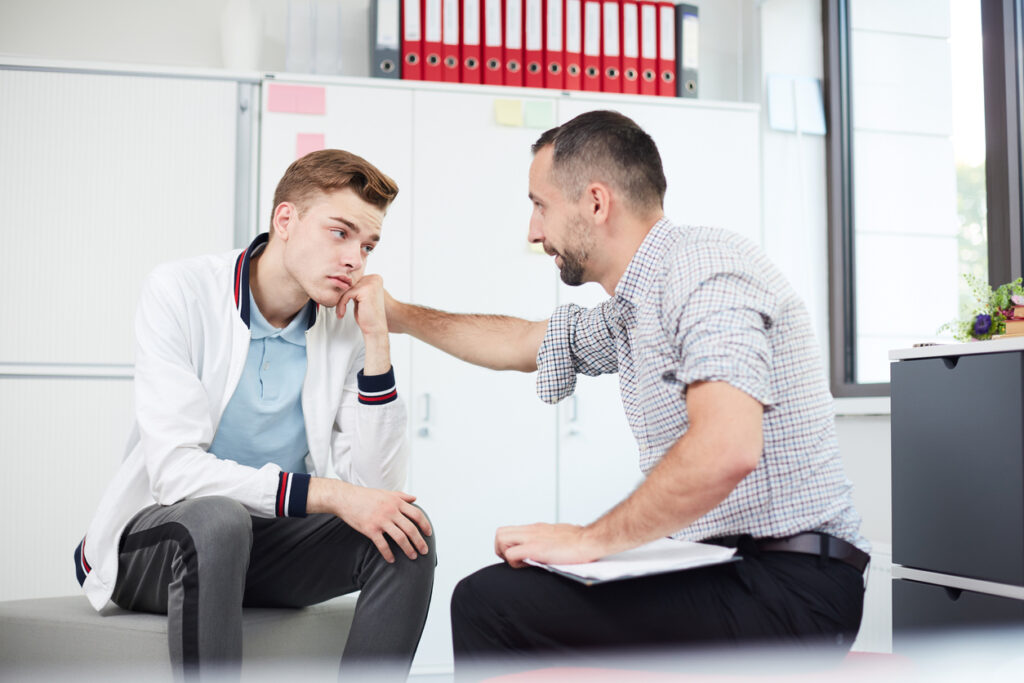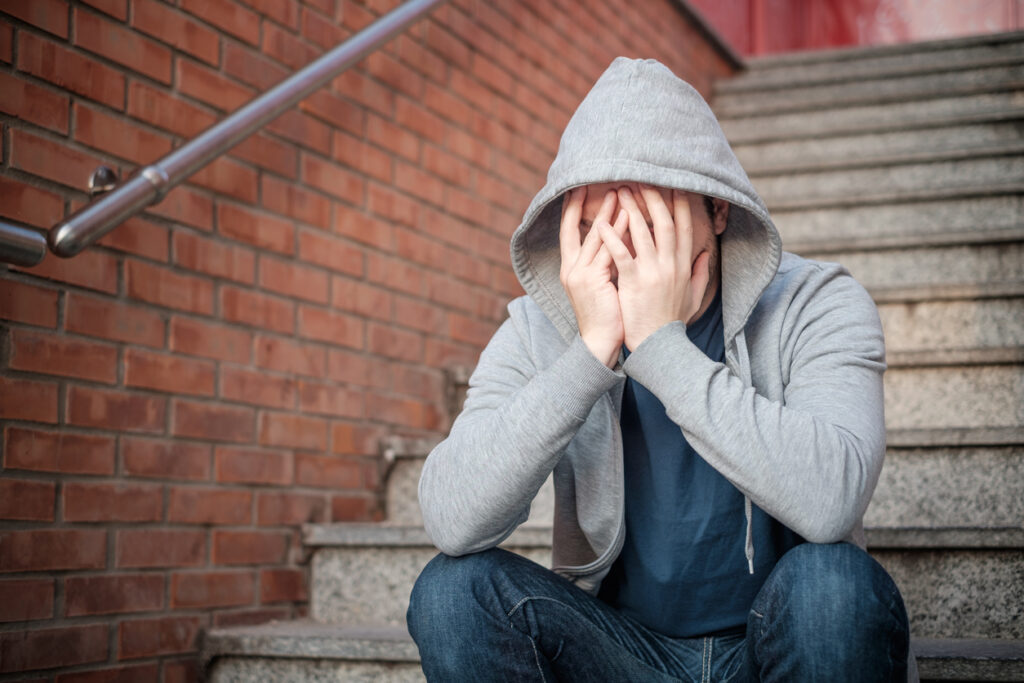Is your son becoming more and more anxious?
The prevalence of anxiety in teenage boys has become a growing concern, with increasing numbers experiencing significant stress and mental health challenges during their adolescence. It can affect nearly every area of life, including social interactions, academic performance, and overall well-being. At Evolve Treatment Centers, we understand the unique challenges faced by teen boys grappling with anxiety. Below, we’ll talk about the causes, symptoms, and effective strategies for managing anxiety, and how Evolve’s comprehensive approach can help.

Understanding Anxiety in Teen Boys
The Nature of Anxiety in Teen Boys
Anxiety is more than just feeling stressed or worried. It’s a pervasive condition that can cause significant distress and hinder a teen’s ability to function effectively in daily life. For teen boys, the manifestation of anxiety can often be overlooked or misinterpreted as mere behavioral issues or typical adolescent turmoil.
Causes of Anxiety in Teen Boys
The causes of anxiety in teen boys are multifaceted, ranging from genetic factors and chemical imbalances to environmental influences. Key contributors include:
- Pressure to Succeed: Academic and social pressures can lead to significant stress.
- Social Media Influence: Constant exposure to idealized lives and peer comparisons can exacerbate feelings of inadequacy.
- Biological Changes: Hormonal changes during puberty can affect mood regulation and stress responses.
Recognizing Anxiety Symptoms in Teen Boys
Anxiety symptoms in teenage boys can vary widely but typically include:
- Persistent worry about seemingly minor concerns.
- Physical symptoms such as headaches, muscle tension, or unexplained aches.
- Irritability, restlessness, and a tendency to be easily startled.
- Avoidance of social situations or extracurricular activities.
Additionally, anxiety attacks in a teenager boy may involve episodes of intense fear or panic, often accompanied by difficulty breathing, chest pain, or dizziness.
Starting the Conversation: Talking About Mental Health with Your Teen Son
Having a conversation about mental health with your teen son can be daunting, but it’s incredibly important. Start by choosing a comfortable and private setting, ensuring there are no distractions. Approach the topic gently, expressing your concerns from a place of love and support. Be open and listen without judgment, allowing him to share his feelings and experiences. Encourage him to express what he’s going through, but avoid pressing if he’s not ready to open up. Offer reassurance that it’s okay to seek help and that you’re there to support him every step of the way. Remember, the goal is to make him feel safe and understood, not to solve all his problems immediately.
Effective Strategies for Management of Anxiety in Teen Boys
Professional Therapy
Therapy, particularly cognitive behavioral therapy (CBT), is effective in helping teens understand and manage their anxiety. CBT focuses on identifying and restructuring negative thought patterns to alter behavior and emotional responses.
Family Support
Family involvement is crucial in the treatment process. At Evolve, we encourage family therapy and workshops that equip parents and siblings with strategies to support their loved one.
Healthy Lifestyle Choices
Encouraging a healthy lifestyle that includes regular physical activity, a nutritious diet, and adequate sleep can significantly reduce symptoms of anxiety.
Stress Management Techniques
Teaching teens stress management techniques such as mindfulness, meditation, and breathing exercises can empower them to take control of their anxiety.

How Evolve Treatment Centers Can Help with Anxiety in Teen Boys
At Evolve Treatment Centers, we offer a nurturing environment that fosters recovery and growth for teen boys battling anxiety. Our programs are tailored to address the specific needs of adolescents, incorporating individual and group therapy, family involvement, and education about mental health. Our team of experts is committed to providing the highest level of care, ensuring that each teen’s journey toward wellness is supported by compassion and understanding.
Anxiety in teen boys is a serious condition that requires a thoughtful and comprehensive approach to treatment. We’re dedicated to supporting these young individuals through their challenges with customized care plans designed to promote lasting recovery and resilience. If you know a teen boy struggling with anxiety, we’re here to help. Contact us to learn more about our mental health treatment for teens and how we can assist in their path to a healthier, happier life.































































